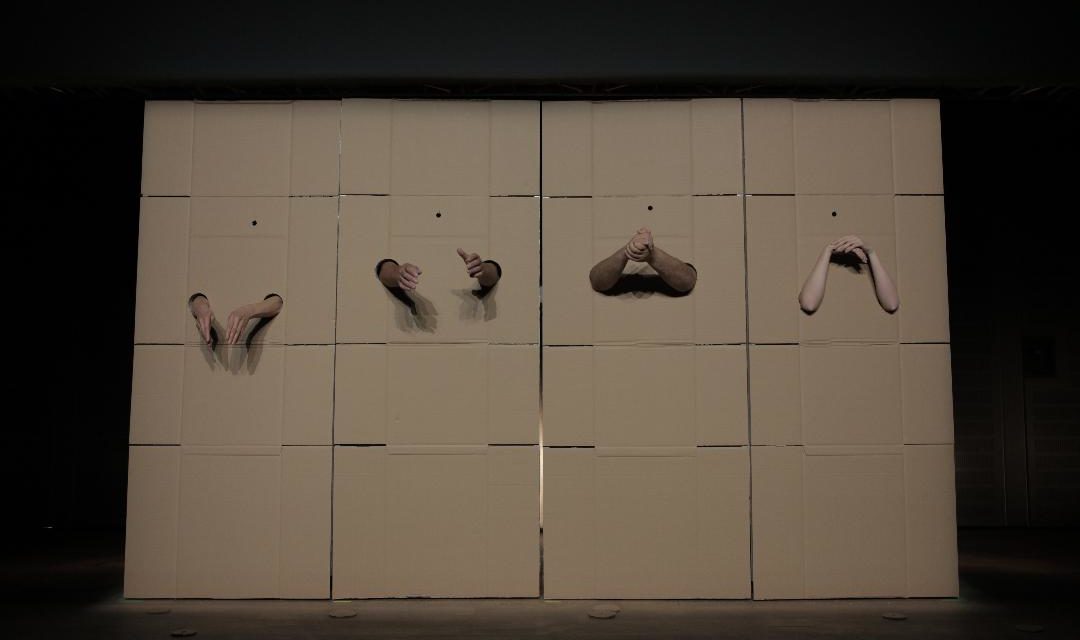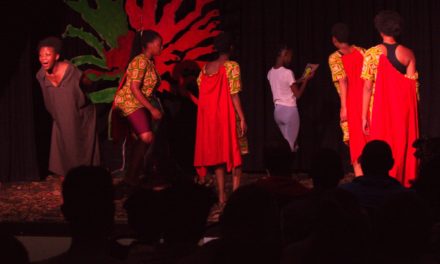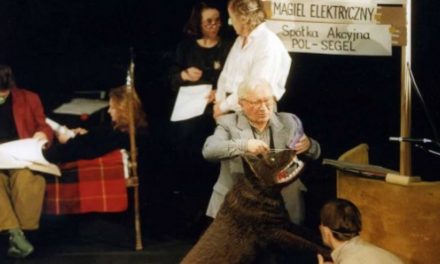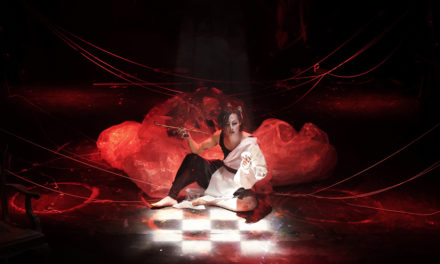The famous Polish critic Konstanty Puzyna once mused, “Why the hell even write about theatre if not to write about life?” And so, it goes, what about that life? Why the hell even write, make theatre or think about theatre if not to dive into some crucial issues concerning our lives and tell us something more about the situation we got ourselves into? Let’s reach for a cliché for once–things have changed. And we, the Poles, and we the people, are deeply divided again; bridges have been burnt, lit up with matches belonging to no-one in particular. Some theatre companies are long gone and so are some of the theatre directors. Some visions are gone and so are some established values. Now the smell of ashes, reverberations of these discords that brought us to where we are, is here to help us to refocus and determine what’s at stake.
The Departure of Marta Keil and Grzegorz Reske
The 2017 edition of the Konfrontacje Festival in Lublin took place amid this hurly-burly of changes happening on the Polish theatrical horizon. It also took a blow with Marta Keil and Grzegorz Reske departing after five years as the festival’s co-curators. Yet more theatrical discord was aptly reflected in the festival’s program, where two visions reigned, one with a fairly safe and rather unassuming program, focused on local and predictable productions, and the other with a more alternative and experimental tinge. The friction between the two, in light of the fact that the latter was to vanish soon after, illustrated well this process of slow erosion, a rejection of that which is innovative and progressive and a turn to theatre that is often predictable and therefore easily and likely to be controlled. It is, however, in these small cracks, crises, and turbulences that some of the most engrossing and fecund spots could be found.
The duo’s last edition, entitled And what if… , was both their goodbye and an attempt to reach beyond the limits of that conventional horizon. The question of what theatre can do at the present moment was probed and cross-examined with a greater or lesser emphasis on word and body, while the theme of testing limits carried throughout.
From Real Magic to Sluts of Revolution
Forced Entertainment, with their Polish premiere of Real Magic, fit right into the landscape of absurdity. Jerry Killick, Richard Lowdon, and Claire Marshall, heavily relying on repetition and the pattern of a game show, test the limits broadly defined. It is a show constructed on the simple foundation of a guessing game, where the participants try to guess a word that one of the other participants is thinking of. This banal goal, constructed on a nauseatingly repetitious formula, never gets achieved; it is always and forever suspended in this gut-wrenching limbo, bringing to mind the best of Beckett. It’s all fine and dandy until we realize how Forced Entertainment touches upon what it means to live now, describing with poetic precision the dumbfounding and stultifying experience of being faced with a sea of obtuse tweets from certain presidents, of fake news, of vapid entertainment. Suddenly we find ourselves in this familiar territory of good-humored ignorance where we are once again spectators, frozen, without the ability to act and “make things right.” It is one of those productions that make you practically feel physical pain while watching it. Or perhaps it’s the weight of your consciousness which makes itself felt.
Jolanta Janiczak and Wiktor Rubin, along with the Teatr Polski from Bydgoszcz, brought to Lublin Stateswomen, Sluts Of Revolution, Or The Learned Ladies, (Żony stanu, dziwki rewolucji, a może i uczone białogłowy) a piece focusing on women’s rights and equality, conveyed through a loosely interpreted story of Théroigne de Méricourt. The narrative, which centers on the feminist activist of the French Revolution, is punctured with many interventions concerning present-day issues, including both the internal Polish and worldwide debates on gender equality. Thus, among others, an offensive quote from President Trump makes its appearance, as do a few idiotic and misogynist rants from Polish politicians. One of the underlying questions of the piece is to what degree theatre can incite a non-fictional rebellion. Soon the piece turns into a full-blown demonstration, with protest signs crowding both the stage and the audience; the actors encourage, urge, or even coerce the spectators to take the signs and go outside, in order to express their rage at present-day injustices. And we too, together with my Croatian friend, both quite pushed over the edge or perhaps too flippant, we pick up the “stop repress women” [sic] sign, only to take it out to the hallway, protesting the bad English grammar. Unfortunately for the English speakers present, messy slogans such as “equal pay for equal women” [sic], “not war for oil” [sic], “sister unite” [sic], or the spelling of “hijab” as “jihab” effectively clouded what was meant to be conveyed and the intended tone. This seemingly insignificant and humorous detail illustrates quite well the main problem of Stateswomen… , that is, an ongoing struggle with words. At times the piece is bathed with them to an unbearable level, at others it lacks some precision of language. One would think that certain issues cross the language barriers and are pretty universal for many, but the speed with which words were being professed from the stage, along with pretty bad translations all around, revealed that this particular message could not really go past the boundaries of the local backyard. It is predominantly a loud call to action, which, unfortunately, reaches out for solutions of the past, simply flipping tables, relying on long-winded and sometimes too exalted speeches, closing it in a rather unpalatable agit-proppy box. I really wanted to like this piece, but its accessibility was compromised and so was the space (and–most importantly–the freedom!) for individual reflection. And as it stands, the Stateswomen were drowned and killed with words.
Still Life and One Gesture
On a different note, Agata Maszkiewicz and Vincent Tirmarche’s Still Life (Martwa natura) is one of my personal favorites, for reasons I struggle to put my finger on.
This performance tackles the relationship between objects and memories quite brilliantly. The question of objects’ persistence–whether as physical keepsakes or as fragments of cherished memories–is explored in four interviews which start each sequence of the piece. Each interview is then punctuated with a corporeal response from the dancer, playing with the notions of time, subjectivity, and repetition. It is truly a well-crafted response and by no means a boring re-enactment of what was put in words right before it. How do we cherish objects, and why? What leaves a lasting impression, and how do we attach that meaningful aura to objects that are objectively indifferent? What does it mean to last? The interviews are what keep us grounded, while Maszkiewicz’s response is what allows us to touch the transcendental and the ineffable. It seems that there is a silent equivalence established between objects and words, memories and body, each pair resonating with a different set of affective charges. The piece is absolutely moving and mesmerizing, questioning that which is physical and that which is not readily present, leaving us with that precise lasting impression which persists, like an attachment to an object we long cherished.
Wojciech Ziemilski also focuses on the friction between body and words, although words are definitely not enough to describe what makes One Gesture (Jeden gest) an amazing experience. Ziemilski weaves in front of our eyes and between the stage and the audience a certain invisible and heartwarming threads of understanding. We slowly step into the world of deaf people, being led by stories told–and signed–by four characters who cannot hear. It is neither mawkish nor preachy, though; we get to see the nuances of sign language and become acquainted with a universe that has always been adjacent to the one that hearing people know best, an existence that we often fail to acknowledge or fathom. Ziemilski leaves his audience with tears in their eyes resulting not from a cheap melodramatic thrill but from the pure experience of learning more about another human being. As if from a melted iceberg of deliberate ignorance, these tears flow in expiation for a deliberate lack of interest not only in the world of deaf people but also, by proxy, in the world of those who are not exactly like we are, whatever that might entail. The performance crushes conventional boundaries and grips its audience by the guts without the use of elaborate gimmicks. Without following prescribed patterns, and relying on simple communication, it shows that sometimes words are hardly needed–a gesture is enough to create a bridge of understanding.
Transcending limits and embracing failures
For their conclusion, Keil and Reske chose Martin Spangberg’s Natten. This night-long dance performance lasting for four, six, or seven hours (its length was debated both before and after the show) left whoever survived its entirety feeling awe and deep time-confusion. Beginning late Saturday evening and ending right before dawn on Sunday, Natten complicated the notions of time, performance, and the actor-spectator relationship. Above all, it challenged the limits of theatrical encounter and brought attention to the subject of community. Here the audience gets to share with the performers much more than usual; if we all agree that sleep is a most intimate life function. At first, things appear quaint and ridiculous. I say to myself: Of course I won’t sleep wrapped in these blankets which are spread around the conventionally marked stage! I will only stay for an hour, seated comfortably, see how it is. And then it begins, although nobody knows when exactly. The light is sparse; there are no spotlights, just this slow dance which doesn’t lead anywhere: a slow sway rocking you to sleep. Things progress but it’s also hard to delineate that progress–it is definitely not linear, sounds change, senses do too, some spectators leave or maybe they are going to get coffee, to make sure they can stay up for more. I lie down and wrap myself in a blanket. It all becomes very natural, this undefined performance happening among us, because it is not “for” us or not really “in front of us” since the spectators are seated all around, their perspectives differ, we all get to see each other in the picture of this performance. I see some members of the audience from across the room, they are drinking vodka and I never get to open my beer, eager to take it all in sober. I am a little bit too afraid to let myself fall asleep; there are moments when unexpected sounds erupt or frightening creatures appear among the spectators. But then things finally start falling into place; at some point, the performers gather in the middle of the space and quietly begin singing Ásgeir’s Going Home. This is where it strikes me the most: we are just here to share a night together, a community of strangers, lost in darkness; we can’t even distinguish the features of each others’ faces but we are sharing something special–this newly formed and temporary community that will dissipate at the break of dawn. At this campsite with a fire made of human hearts and voices, we are no longer spectators; we are all taking part in something special, and it’s effortless: the sense of being there for each other without even knowing one another. I feel safe here. A few tears roll down my cheek; I close my eyes and fall asleep. I don’t know how long it lasts; when I open my eyes again I can still hear the lullaby being sung, intertwined with the sounds of my comrade on the left who has been snoring for the past couple of hours…or minutes? I try to fight off the sleepiness, sometimes succeeding and sometimes in vain. Time passes; the community bond is forged, even though only a few stay until the end.
What if… we try to think not in terms of discord but in terms of productive friction. In terms of this Spangberg’s effortless community, embracing that which we despise, what makes us go beyond our comfort zone, and which helps us persist? It’s all about the limits, about discovering the lines of their imposition; then probing, exploring them from up close, touching, sensing and finally crossing them, if an opportunity presents itself. Neither “success” nor “failure” applies to the 22nd edition of Konfrontacje Teatralne, simply because neither triumph nor failure was at stake. It was simply a valuable lesson, to go on at all costs, transcending limits, going beyond the conventional lines drawn inside the theatre and outside of it, accounting for all the mistakes and then reaching out for new solutions, experiences, and knowledge.
This post was written by the author in their personal capacity.The opinions expressed in this article are the author’s own and do not reflect the view of The Theatre Times, their staff or collaborators.
This post was written by Agata Tumiłowicz-Mazur.
The views expressed here belong to the author and do not necessarily reflect our views and opinions.


















